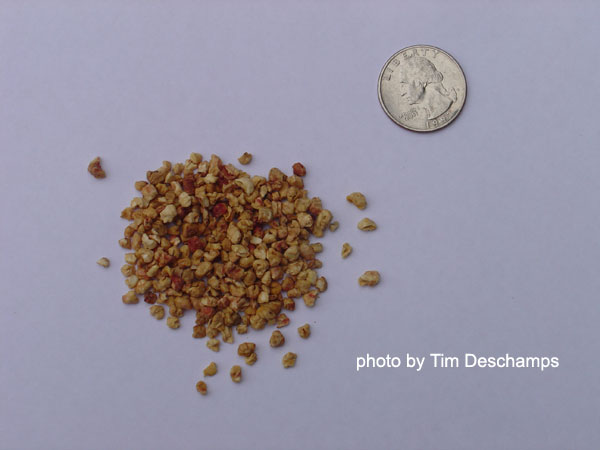Bti (Bacillus thuringiensis israelensis)
What is Bti?
Bti stands for Bacillus thuringiensis israelensis, a non-reproducing bacterium discovered in the soil of Israel's Negev Desert in 1977. When the mosquito eats the Bti spores and crystals, they enter the larvae's stomach and dissolve. Due to the specific pH of the mosquito’s midgut, these crystals produce a toxin that is fatal to the mosquito, but has little or no impact on other aquatic life that eat it or come in contact with it . Commercial manufacturers have produced several different formulations to provide a variety of application methods.
Larviciding with Bti:
A granular type of Bti is used in different ways. It can be broadcast by hand or using a backpack, where the applicator can access areas not available to truck mounted equipment, or aerial applications due to a heavy tree cover (canopy). Aircraft, either fixed wing or helicopter, can be used to deliver it to large, widespread areas inaccessible to any truck or hand application because of size or location. Once a threshold of <1 larvae per dip average over 5 dips is confirmed then a treatment is done at that time.
Bti is considered practically non-toxic to humans, birds, amphibians, reptiles and other animals. These applications are typically made in isolated areas, away from most residential areas. Therefore the applications present a minimal risk to the general population.
Aquabac® 200G granules are considered an organic pesticide and is listed by OMRI (Organic Materials Review Institute) as a certified organic pesticide - please see certificate below.
AquaBac® 200G Granules:

Pesticide Labels:
Safety Data Sheets:
Organic Certification Certificates:
- AquaBac 200G OMRI Certification 2018
- AquaBac 200G OMRI Certification 2019
- AquaBac 200G OMRI Certification 2020
- AquaBac 200G OMRI Certification 2021
- AquaBac 200G OMRI Certification 2022
- Aquabac 200G OMRI Certification 2023
Websites:

